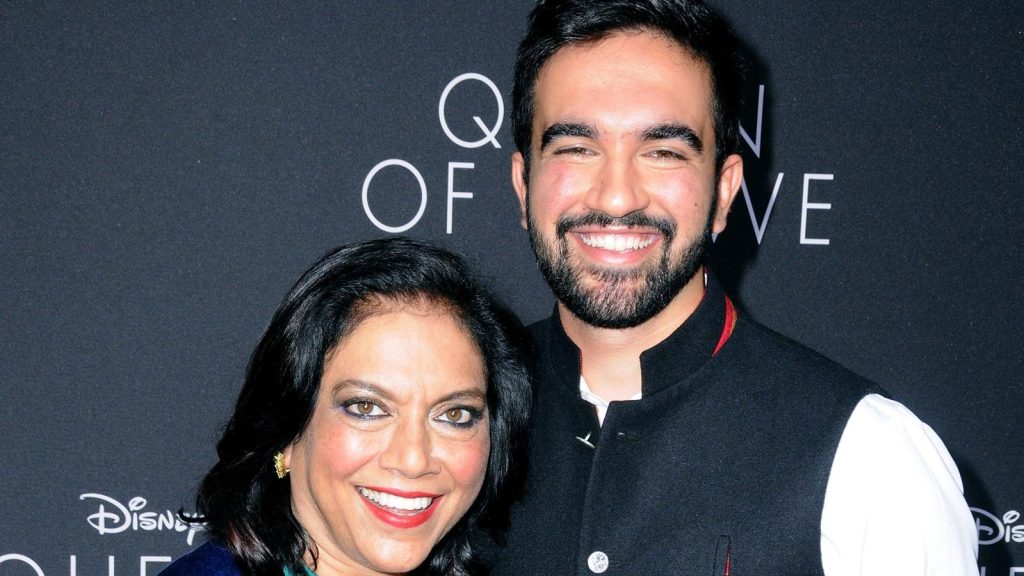LONDON, ENGLAND – OCTOBER 09: Director Mira Nair and Music Supervisor Zohran Mamdani attend the … More
Getty Images for Disney
Zohran Mamdani has made history with his successful nomination as New York City’s first Muslim primary candidate. The 33-year-old state assemblyman has ensnared a wide net of seasoned billionaires and enthusiastic young activists, presented as a regular New Yorker who lived in Africa as a child. Recently married to a stunning young Syrian-American illustrator, he is an active voice in the Free Palestine movement, who has also managed to charm many left-wing Jewish people, including the affable and quirky Kennedy family member Jack Schlossberg. But Mira Nair, the acclaimed filmmaker, is rarely explored as more than his mother.
Along the way on his incredibly charismatic and relatable journey to the top of New York’s political sphere, his mother, Hindu, Oriya-born Indian film director Mira Nair, has hardly been mentioned. Presenting as Muslim perhaps exempted him from comparisons to 2020 Democratic Congressional candidate Sri Preston Kulkarni from Texas, who used his polyglot skills to reach a wide array of voters, but was chastised for seemingly pandering to Hindu conservatives. Today, Mamdani’s mother is reportedly based in Africa, where his father is a subject specialist academic. But Nair taught film at Columbia University when Mamdani was a young man, and is a very important storyteller of Indian and broader South Asian narrative history in diaspora.
Nair was widely celebrated for her groundbreaking film, Mississippi Masala. The film was made in 1991, the year Mamdani was born, exploring the taboos of interracial love in rural Mississippi with Sarita Choudhury and Denzel Washington. Her first husband, her Harvard professor Victor Epstein, parted with her amicably enough in 1987 to continue to collaborate on the project. Mamdani himself is a product of inter-religious love, and the courage it takes to buck tradition.
When Mamdani was a child, his mother adapted two books about South Asian American boys to film: The Namesake in 2006 with Kal Penn, and The Reluctant Fundamentalist in 2012 with Riz Ahmed. Kal Penn, although best known as Kumar in the cult classic Harold and Kumar go to White Castle (not by Nair), was born Kalpen Suresh Modi, and later was very active in the Obama administration as a formal liaison with Asian American and arts communities. Mamdani was also quietly tutored by Daanish Masood Alavi, a United Nations career peacebuilder who used Augmented Reality and AI to create pathways to empathy with Be Another Lab.
In addition to the intense influence of political networks that shaped young Mamdani, his mother’s roots arguably paved the way for his ability to win audiences. A 2019 interview Nair gave [me]
for l’Institut français argued this fact presciently.
“Coming from a country like India which had colonialism for more than 100 years, so often, we have had people speak for us, instead of us speak for ourselves,” she explained by phone nearly seven years ago. “That happens all over the world. It’s about time that we tell our own stories—our way.”
For Nair, who once rejected the opportunity to direct The Devil Wears Prada, “Every film is a political act. You have to choose whose point of view, the language, the music, the poetry of it, because nothing is more powerful than making the world as authentic and truthful as from where the story comes. I take great joy in making it feel truthful to those who belong there—because if you make truly local films in that sense, they become universal. People smell the truth of it, the authenticity.”
Ironically, Netflix former chairman Reed Hastings bet against Mamdani in the mayoral race. His investment of $250,000 failed to engage audiences.
Mounting fear within the Jewish and Conservative communities of New York is that Mamdani’s furtive stance of justice for Palestine and divestment from Israel is stoking the flame of more virulent Anti-Semitism to come. Comparisons to “Handsome Karl” Lueger, a populist mayor in Vienna who had many Jewish supporters while captivating a young Adolf Hitler, are seen as bombastic. Perhaps the hope present in Mamdani’s mother’s films, and Nair’s superpower to narrate untold stories, will guide New York City to a better world.


